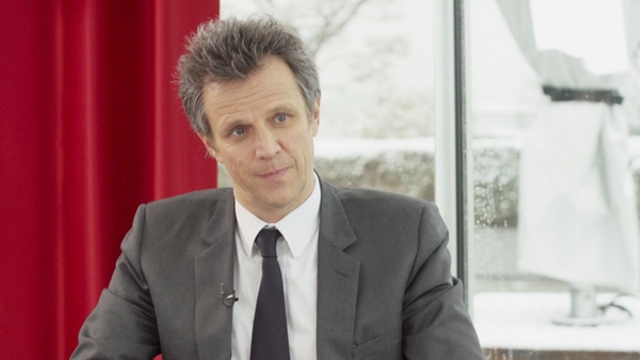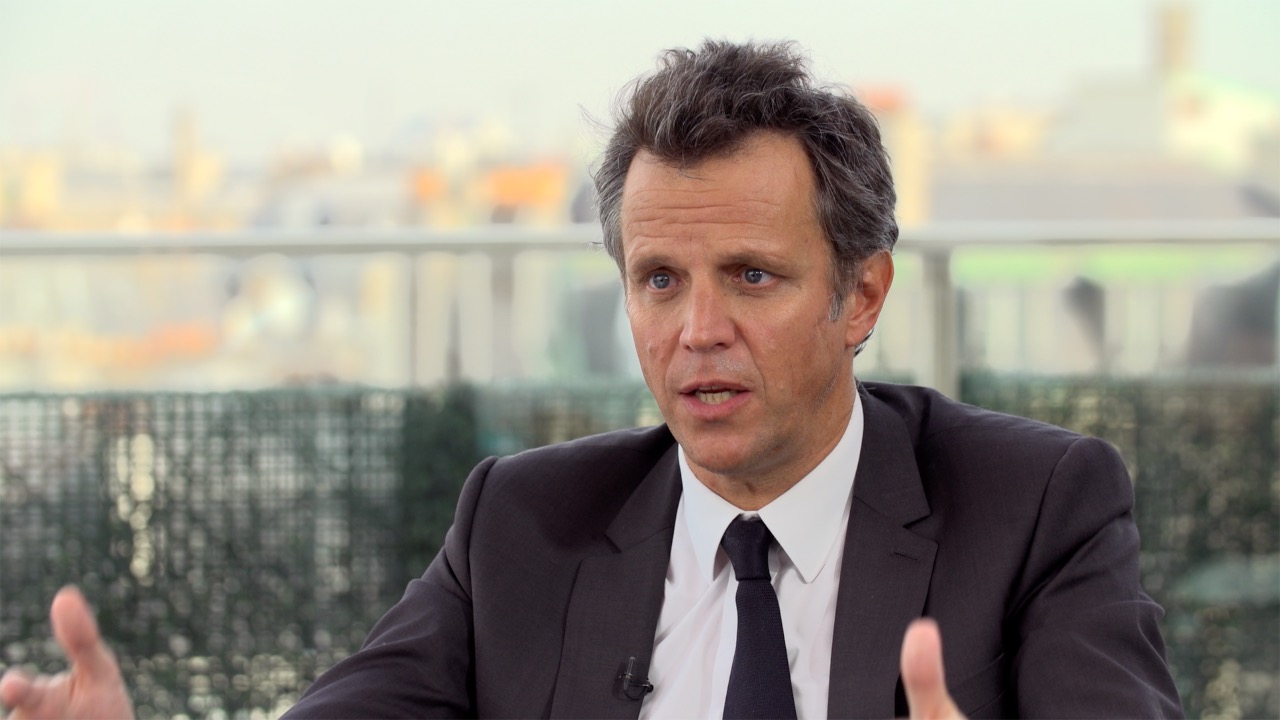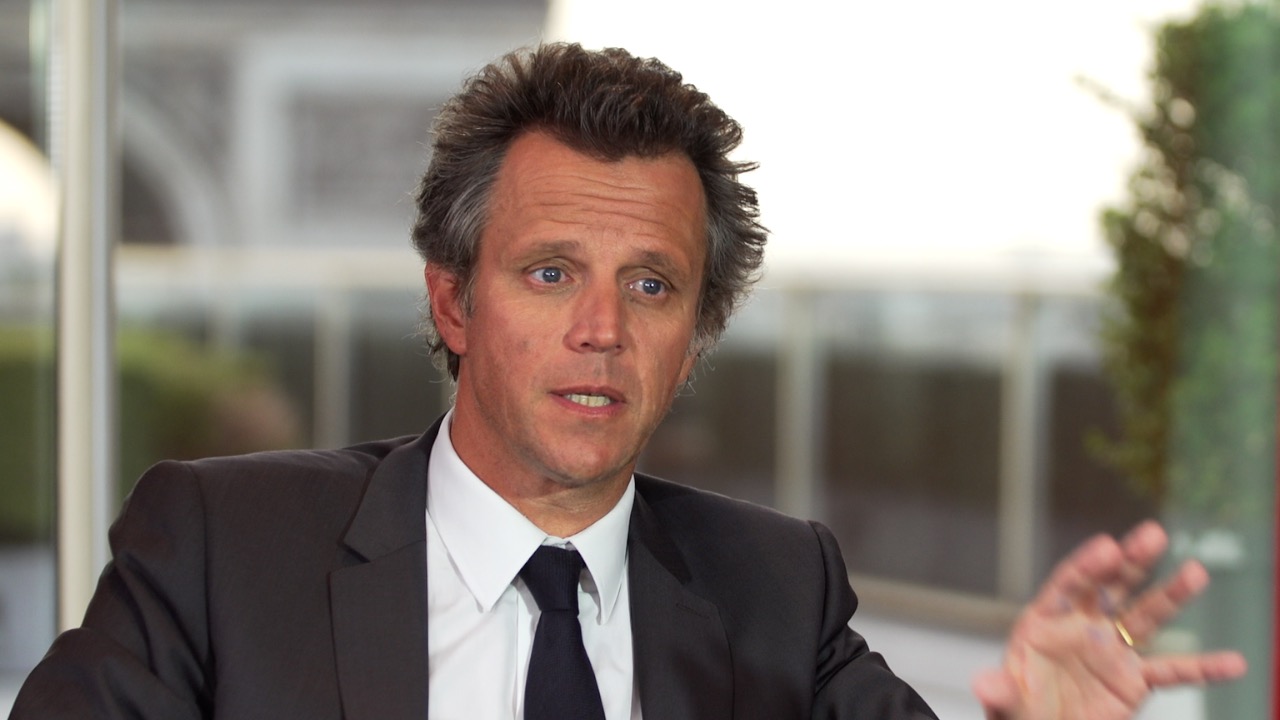EuroBusiness Media (EBM): Publicis Groupe, the world’s third largest advertising and communications group, reports results for the third quarter [of 2014]. Maurice Lévy welcome, you are the CEO of Publicis Groupe. What are your comments on your organic growth in the third quarter?
Maurice Lévy: We have to be blunt and to look at things with objectivity. Q3 growth numbers are not good: 1% growth is a slight improvement compared to Q2, but it is far below what we could expect and what we can deliver. I cannot tell you that I am happy with such numbers. It’s not at the level of my expectations and not what Publicis Groupe can deliver. The reasons for that performance are many. There are some issues on emerging markets, some issues on Razorfish, and some issues in other operations. But the reality, if we look at the facts, is that we have been too focused on the project and not enough on short-term issues and growth. This is now behind us. We are back, and we are aggressively looking at growth, and I can say without a hint of doubt that this is an old story and we are moving forward.
EBM: When looking at the major geographical zones, are you seeing any signs of pick up in the US or in Europe as we head into the fourth quarter?
Maurice Lévy: If you look at the economy, it is extraordinarily contrasted today. In Europe, you see good news and bad news almost by the day, and you see some ups and downs, again, almost by the day. So, it’s extremely difficult to say that the market will pick up seriously in any given region of the world. However, we will certainly count on good growth in the UK – I’m speaking about the market, not our performance, – stabilization in Germany and France, a small pick up in Spain, and all the rest will be difficult. That’s for Europe. In the US, depending on sectors, we can expect some nice growth in consumer goods, and we can expect good growth in IT, telco, and digital technology. We can also expect, certainly, some good recovery in financial services, where we expect that banks will continue to invest.
EBM: In emerging markets, what is your update on Brazil, China & India?
Maurice Lévy: China is facing a slower recovery than expected, and the transition to the consumer economy is slower and taking much more time than expected initially. So I have some doubts on the time when China will be firing on all engines. In India, we had a very good third quarter; however, I’m still in doubt about the recovery in the country, and I believe that we will see a slow, progressive pick up, and we should not expect to see a major change in the trend. For Brazil, we have to wait for the election, which is coming soon, and we will see what will be the first decisions. I don’t believe that Brazil will be again on high single-digit numbers, and I think that, at best, what they will do in 2015, and at the end of this year, will be low single-digits.
EBM: You’ve previously briefed the market on the digital transformation of your company, but traditional or analog business still remains a big chunk of the pie, which is declining quarter after quarter. Can you give us some commentary today about how successful you are at stalling the decline of this part of your business?
Maurice Lévy: This is one of the major explanations for our poor performance, and we have growth in this area, which is negative. We have a decline, to use the right word – negative growth is something that is always surprising. We are seeing some slowdowns to the decline and we see some actions which have been taken by our agencies which I believe are very good. We have done some changes, and we are making some very important changes in our organization, in the way we run it, in the way we are working. We have broken down the silos and we are working on a very different approach. So I am personally extremely confident about the possibility of delivering some very good results on this front. And this will not happen in the coming months, but I’m pretty sure that our performance will be positive in this field in 2015.
EBM: What is your update on your digital business and on your ability to return Razorfish to double-digit growth, after you’ve recently merged it with Rosetta, and streamlined Publicis Groupe from four digital agencies down to two?
Maurice Lévy: Razorfish has faced some serious difficulties. On the one hand, Razorfish has some heavy, large, one-off contracts that came to an end. And that was normal. But the pipeline on renewing this has not been working. The second aspect is that the loss of Motorola, or the fact that Blackberry has trimmed its budget to move from Consumer to Professional, or some other accounts that have dramatically reduced their spending also have a bad effect on the numbers for Razorfish. The end result is that Razorfish has an impact on the Group numbers of 200 bps. So we had to take some action, and what we have done is to restructure Razorfish and to move to a new offering under the leadership of Tom Adamski, CEO of Rosetta. Tom has done a fantastic job as CEO of Rosetta, and we are bringing together Razorfish, Rosetta, and some key assets from Nurun to create Razorfish Global – new offering, new organization. And I’m pretty sure that, as we have had close to double-digit growth at Rosetta, we will get the same kind of growth with the new Razorfish Global. This will end up with, in fact, two very strong, international, global, digital agencies: DigitasLBi and Razorfish Global. I feel very good. On top of that, we have to notice two important factors. The first one is that, despite the fact that Razorfish has not done very good growth and has even declined, we have a 9% growth on all our digital operations. So we see that our digital operations are working extremely well, growing fast, and delivering, and winning. So we feel very good about this. And the total chunk of digital business is now close to 42%. So we see that our strategy is working and the hiccup that we are facing with Razorfish is something that is momentary and will not last. So I feel extremely confident with our digital operations.
EBM: You recently had some notable account wins, Samsung, for example. Would you care to update us on what some of these wins mean for future growth?
Maurice Lévy: Thank you for your question. It’s a very important one. The fact that we have not paid enough attention to new business has been reflected in our numbers. And the poor growth that we have had is not only the fact that some of our advertisers have reduced their investments, but it is also because of the fact that we have not won enough. This is now a past story, and we are moving to a new story. That new story began with the Samsung pitch. All the holding companies had been invited, and 16 agencies had been aligned to participate in that pitch. All this has been published and I am taking this information from the trade press. What do I see? Four different pitches. Publicis has won each one. Network with Leo Burnett, media with Starcom, boutique with BBH, and digital with Rosetta in combination with Digitas. So I feel extremely good about our ability to go back to the front line and to win new business. We have changed the way we are approaching new business, and we have changed the way we are servicing our clients. For most of our clients, we are breaking down the silos, we are creating new teams, and we are delivering on all integrated services at once. All of this is delivering very good results for our clients and helping us to grow with them. So I feel very good, and what you can expect is that we will be much more aggressive on new business in the months to come.
EBM: Since we’re speaking of brands, there is a trend among large consumer goods conglomerates to streamline their number of brands, which leads to fewer overall brands out there. What’s the impact for advertisers such as yourself? Does this mean fewer opportunities as brands disappear?
Maurice Lévy: This trend of reducing or streamlining the number of brands by consumer goods companies is something that is not recent. It’s a process that started at the end of the ’80s, beginning of the ’90s in order to be prepared for global competition and having brands which can compete on a global scale. In some cases, these brands are just folded under an umbrella brand. In some other cases, the advertiser considers that it is much better to sell them. The end result is that we can grow in some areas and we can see some of the brands sold to competitors’ clients. There is also good news in this. It is the fact that you see a few Chinese brands, and some Japanese brands, and some Indian brands, and some Brazilian brands coming to the market with a new stand, new objectives and new ambitions, which are to take market share from the long-established, global, Western brands. I think it’s healthy, and it is also a very good opportunity to grow our business. So, I cannot say that this kind of strategy is something that is negative for us. There are some areas where it is positive and some areas where it is less positive, but one thing that is clearly positive is that the brands are there to last. There are more brands that are competing today, and there is a clear intention coming from the emerging markets to build their their own brands and to compete on the global scale.
EBM: On September 16 you promised the market a strategic update at an investor day to be held at the end of October. Do you have anything to announce today?
Maurice Lévy: Yes, there is a rendez-vous, which is November 7. On the webcast, we will give all the details in due course. What we will do at this presentation is threefold. The first one is the detailed plan to arrive to our objectives for the 2018 plan, which is, on the one hand, to have growth that is higher than the market by 100 bps and, on the other hand, it is how we are going to improve our margin by at least 200 bps. That is topic one. Topic number two will be on our acquisition and investment strategy and how we are going to go to market on that front and how much money we will be investing. Point three will be shareholder’s compensation. Share buyback, if any. Dividends, how much? And any other means of compensation. All this will be presented, I remind you, on November 7, through webcast.
EBM: And lastly, what is your guidance outlook for the rest of this year?
Maurice Lévy: With a performance such as ours in the nine first months of the year, it is extremely difficult to forecast something that is much better. So, we can expect to be roughly in line, hopefully slightly better, for the full year. We will be focusing on two aspects. One is to work on our margin, in order to deliver the strongest in the industry. The second is to work on 2015 commitment – the budget, if you prefer, and making sure that 2014 will be soon forgotten. We have some very good reasons to believe that we can deliver very good performance on growth and on margins. Some of these good reasons rely, also, on the fact that we have a very strong balance sheet, which will give us room for manoeuvre, and we have also a generation of cash flow that is extremely strong, and, I guess, the best in the industry. So when you take all these elements into account, you can feel comfortable and confident for our year end numbers as well as for a good 2015, and I’m pretty sure that our investors, like us, will soon forget the relatively poor performance of 2014.
EBM: Maurice Lévy, CEO of Publicis Groupe, thank you very much.
Maurice Lévy: Thank you Adrian.






